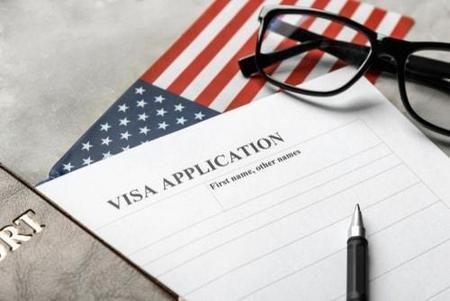Dual Citizenship
 With the unsettled state of U.S. immigration law in recent years, many immigrants who apply for U.S. citizenship are also retaining citizenship in their former country of origin. This status is referred to as dual citizenship, and contrary to many people’s beliefs, it is possible for a person to hold more than one nationality at once, at least according to U.S. law. If you are looking to naturalize, it may actually be to your advantage to retain your old citizenship in addition to applying for U.S. citizenship status.
With the unsettled state of U.S. immigration law in recent years, many immigrants who apply for U.S. citizenship are also retaining citizenship in their former country of origin. This status is referred to as dual citizenship, and contrary to many people’s beliefs, it is possible for a person to hold more than one nationality at once, at least according to U.S. law. If you are looking to naturalize, it may actually be to your advantage to retain your old citizenship in addition to applying for U.S. citizenship status.
Why Keep Both?
In theory, one naturalizes to a new country because something in their old one is insufficient. However, given the potentially precarious state of the U.S. immigration system, as well as its ever-increasing wait times for naturalizations and green cards, it simply seems safer to many to refuse to give up their original nationality, if possible. Under U.S. law, it is not necessary for a new citizen to formally renounce their old country of citizenship; thus, many simply do not. The primary reason given by many, in addition to wanting a backup plan of sorts if the U.S. immigration system changes, is ease in traveling back and forth to maintain business relationships and see family.
There are both pros and cons to the dual nationality scenario, however. U.S. law does, for example, require that while you are in the U.S. as a dual national, you are to be treated as a U.S. citizen, which means that you may not try to claim diplomatic protection from your other home country. The other side of this is also generally true, in that if you are in your second home country, you may find it difficult or impossible to seek U.S. diplomatic help if you get into trouble. Dual nationality may also render you subject to taxation by two different governments.
Relationship Between Citizenship Laws Is Complex
Dual citizenship in the United States can be confusing to understand. Until 1967, when the Supreme Court decided the case of Afroyim v. Rusk, dual nationality was banned in the United States, because it was seen as a betrayal of one nation’s interests for another. However, in Afroyim, the court held that United States citizens could not be deprived of their citizenship involuntarily; rather, to lose citizenship, one had to either affirmatively renounce it or commit an act that amounts to a tacit renouncing of it (for example, entering or serving in a foreign state’s armed forces if that state is fighting against the U.S.).
The ruling in Afroyim means that anyone who naturalizes to U.S. citizenship will be a dual citizen in most cases. The exception to this is if a person was formerly a citizen of a country which still bars dual citizenship - for example, Japan, Mexico, Iran, and many European countries like Austria and the Netherlands. If someone from a country with a law disallowing dual citizenship naturalizes, they are a U.S. citizen only. The same goes for a U.S. citizen seeking to naturalize elsewhere - if the laws of the new citizenship country permit it, the person will be both a U.S. citizen and a citizen of their new adopted country.
Contact a Chicagoland immigration Lawyer
If you are a dual national, or you wish to become one upon naturalization, it can be easy to get confused about the status. Contacting a dedicated DuPage County immigration and naturalization lawyer is a good idea, so you can ensure that all your questions are answered. Mevorah & Giglio Law Offices has been handling these matters for years, and we are happy to try and assist you with yours. Call our office today at 630-932-9100 for a free consultation.
 English,
English,
 Spanish,
Spanish,
 Polish,
Polish,
 Urdu
Urdu













 Make a Payment
Make a Payment



